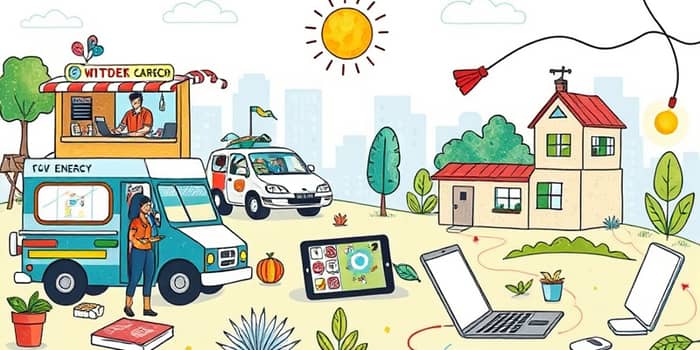
Facing the possibility of a U.S. recession in 2025, businesses and individuals alike must be ready to pivot, adapt, and uncover hidden value. While economic forecasts signal slower growth and tighter budgets, history shows that downturns also create fertile ground for innovation, strategic acquisitions, and resilient business models.
In this article, we explore the essential goods and value-for-money services that remain in high demand, highlight emerging opportunities, examine compelling data, and offer actionable strategies to thrive in uncertain times.
During economic contractions, consumer priorities shift dramatically toward indispensability. Industries that deliver necessities or help stretch budgets often see sustained or even increased demand. Below are key sectors poised to unlock value when spending tightens:
By focusing on core, unavoidable customer value, these sectors not only weather recessions but can also attract new customers seeking stability and affordability.
Innovation often accelerates when businesses are forced to do more with less. The following models and niches demonstrate significant growth potential:
Adopting lean, resilient business models empowers entrepreneurs to pivot quickly, reduce fixed costs, and capture emerging consumer preferences.
Quantitative analysis underpins confident decision-making. Below is a snapshot of high-growth markets and their projections:
These figures illustrate where capital and consumer interest are converging, offering clear targets for investment and entry.
Tapping into lucrative opportunities requires both vision and execution. Consider these strategic approaches:
By embedding sustainable food production and services into your offerings and fostering strong relationships, you create lasting competitive advantages that outlive the cycle of any downturn.
Understanding shifts in mindset is as crucial as analyzing spreadsheets. Key behavioral changes include:
Essential over aspirational: Consumers ditch luxury in favor of practical solutions that address immediate needs.
Trading down: Even higher-income households often seek value alternatives, moving from premium brands to reliable, cost-effective options.
Home-centricity: Spending on home improvement, cooking, and remote work tools spikes as people invest in comfort and utility within their own walls.
Trust in resilience: Brands that communicate stability, deliver consistent quality, and showcase social proof maintain customer confidence.
Real-world success stories illuminate the path forward:
Food trucks and mobile repair vans have thrived by offering convenient, low-overhead services directly in neighborhoods. These agile models respond swiftly to changing demand patterns and customer locations.
Digital content creators on platforms like Substack and Patreon build direct relationships with subscribers, monetizing expertise through newsletters, podcasts, and exclusive forums. Their lean setup minimizes costs while maximizing engagement.
Agribusiness entrepreneurs specializing in local, organic products connect with conscious consumers via e-commerce, premium packaging, and transparent sourcing. Olive oil, boutique wines, and zero-mile produce command strong premiums.
Community-focused repair shops, tutoring centers, and freelance consultants deliver personalized service that large corporations struggle to match. By emphasizing responsiveness and trust, they convert one-time customers into advocates.
Economic headwinds are inevitable, but they need not spell decline. By identifying resilient sectors, embracing emerging trends, and applying data-driven strategies, you can transform uncertainty into a landscape of opportunity. Remember to remain nimble, invest in your core strengths, and cultivate trust with every interaction.
Whether you are an entrepreneur launching a new venture or a professional seeking to future-proof your career, the keys to unlocking value lie in meeting fundamental needs, harnessing innovation, and staying attuned to consumer behavior. In doing so, you not only survive challenging times—you emerge stronger.
References













